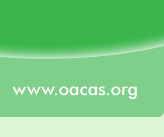 |
||
| HOME >Special Edition: June 2008 Joint Conference - Volume 52 - Number 3 | ||
Youth report on improving the well-being of youth in care
OACAS/CMHO Joint Youth Conference: Synergy was a huge success. Over 140 youth from across the province came, shared their stories, attended great sessions and made new friends. Youth attended from Children’s Aid Societies (CASs) as well as from Children’s Mental Health Ontario centres. What does synergy mean anyways? According to dictionary.com, it is “the interaction of two or more agents or forces so that their combined effect is greater than the sum of their individual effects." Synergy was a great theme for the Joint OACAS/CMHO Conference because youth in care cannot go through life alone. It takes other people including their worker and their agency as a whole to contribute to their lives and to help them grow and become successful adults. This was emphasized throughout the conference and with the Youth Policy Advisory and Advocacy Group (YPAAG) focusing on emotional support. The Conference was a blast. Our opening motivational speaker was Josh Shipp, a former youth in care from the United States. Josh gave words of inspiration to youth and touched many people there through sharing his experiences growing up. He was humorous yet motivational: “When life gives you lemons, make lemonade!”. He challenged everyone at the conference by saying, “Don’t be ordinary!”. Uniqueness is important! The Conference also offered youth a video dance, an amazing talent show, informative sessions, an open forum for youth, plus lots, lots more. Marc Kielburger, the co-founder and Chief Executive Officer of Leaders Today and also the Chief Executive Officer of Free The Children, closed the 2008 Joint Conference with an eye-opening presentation about his work and experiences in Africa. Youth Presentation Before the closing of the Conference, YPAAG, representing 145 youth at the conference, presented detailed recommendations on how to better prepare and support youth in care for success in life. The recommendations were developed during the three-day conference and built on over two years of advocacy by this group and other youth in care from across Ontario. In the past, youth have been presenting recommendations to improve the child welfare system by asking the question: “What would a good parent do?”. At this year’s conference, they asked: “Who would you call?”. Present were conference attendees, representatives from the Ontario government, CAS and CMHO staff, foster parents and others. Young people representing Crown wards and former Crown wards in the care of Ontario’s CASs noted that “no other relationship begins with an expiry date” and recommended additional emotional supports and continued service to youth until 25 years of age. Under existing child welfare policy, youth in care are not eligible for service, protection, emotional or financial support beyond the age of 21. As most youth in care rely on their local CAS as their parent, many expressed their concerns that they would lose the support of their caseworkers, who are for many the only family they have known. They also acknowledge child and youth workers face considerable workloads and carry many cases at a time. YPAAG made recommendations in the areas of emotional support, increasing the age of eligibility for service from 21 to 25 years, educational support and financial assistance. Recommendations Emotional Support
Raise the age of eligibility to 25
Other recommendations in the areas of finance and educational supports include:
Previous article: Paediatric Death Review Committee 2008 Annual Report Next article: Conference snapshots |
||
| Download PDF version. To change your subscription or obtain print copies contact 416-987-3675 or webadmin@oacas.org |
||
|


